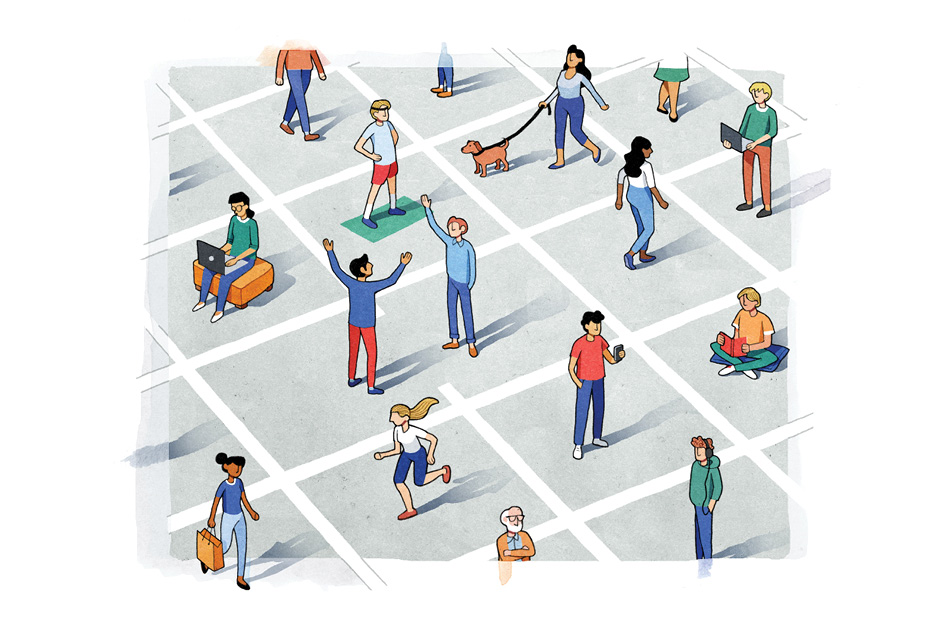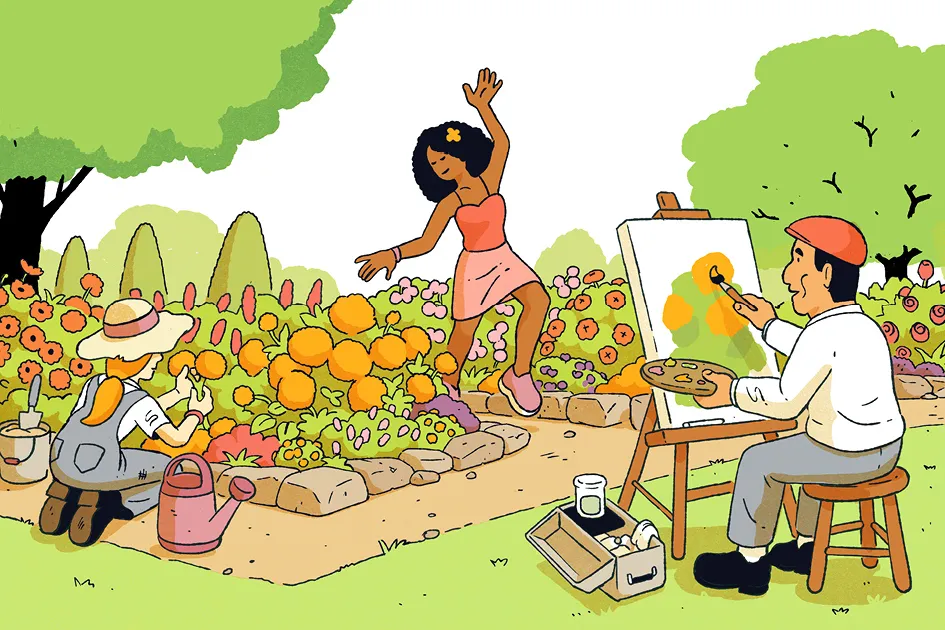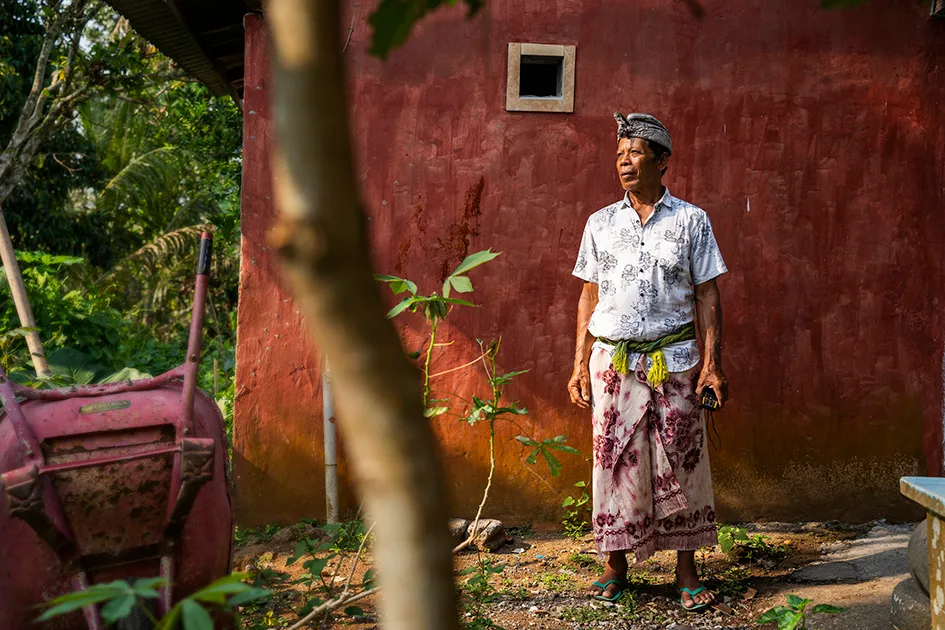Each month, we ask two writers to reflect on a quote by Dr. Stanley. For October, Charity Singleton Craig and C. Lawrence explore the role of friends in our faith—and how they help us become the people God intended. Here’s an excerpt from Dr. Stanley’s sermon “Building Wise Friendships”:
It is God’s plan for the life of every one of us to have genuine, intimate friends. Think about when the Lord said, “It’s not good for man to be alone.” He intended for us to build, to establish, to have those kinds of relationships to help fill up our life. Now God certainly can make any one of us adequate and sufficient within ourselves, but He desires that we live among friends and have friendships.
Take 1
By Charity Singleton Craig
When I was in my mid-30s and single, I had a small group of friends that I spent lots of time with. We went to church together, we did our grocery shopping together, we regularly ended up at each other’s houses for dinner or games or just hanging out.
These friends were like family. Yet they didn’t live with me or share responsibilities or resources. They were friends. Important friends. But friends I could leave behind at the end of the evening or say no to on a busy day. Most importantly, when I was upset or angry, or when they were impatient or just grouchy, I could simply avoid them.
I’m a much better Christian when I’m alone, I’d tell myself late at night, after a tense disagreement or a selfish assertion of my own preferences. Friends bring out the sin in me, I’d think when I just felt like being myself.
But then I’d remember Jesus, how He came to earth not as a dictator surrounded by subjects or a king surrounded by vassals but as a carpenter, and later a rabbi, surrounded by followers who were also friends.
Jesus came to earth not as a dictator surrounded by subjects or a king surrounded by vassals but as a carpenter, and later a rabbi, surrounded by followers who were also friends.
As part of the Holy Trinity, Jesus lived in perfect community with the Father and the Spirit. When Jesus established His kingdom on earth, the priority placed on relationships was no different. Being a follower of Jesus was always about “lov[ing] the Lord your God with all your heart, and with all your soul, and with all your mind,” but also about loving others as you love yourself (Matt. 22:37-39).
Sometimes those who are closest seem to bring out the worst in us, and as in those days with my friends, we feel much holier holed up by ourselves. But in the years since, after becoming a wife and a stepmom, I’ve realized that the distance I used to put between myself and others was a smokescreen. It’s not that being married with kids made me any holier than when I was single. It’s just that the near-constant proximity to those I suddenly lived with revealed that being alone only appeared to be the source of my growth and maturity. In fact, I learned more about what it means to love, serve, encourage, and all the other “one another” commands of Scripture by being in close relationships—with friends as much as with family.
The kingdom of God doesn’t make much sense without other people. The call to community is not about having friends to “practice” the second greatest commandment on. It’s about genuine relationships we can depend upon, even when we’re the ones who need to be loved and served and encouraged.
Sometimes those who are closest seem to bring out the worst in us, and we feel much holier holed up by ourselves.
Blaise Pascal famously said that the “infinite abyss” of longing in each of us “can be filled only with an infinite and immutable object, that is to say, only by God Himself.” Philosophers and theologians have called this the “God-shaped hole” that exists in each of us. But I think we have two such voids in the deepest part of our soul: One for God, as Pascal has explained, and one for other people—the dear ones God brings to help fill us with His love.
We were made for the Lord and we were made for each other. That’s why friendships are so important in God’s kingdom.
Take 2
By C. Lawrence
The COVID-19 pandemic gave us all an opportunity to step back and evaluate what—and who—really mattered to us. But the fallout has been especially unkind to relationships. I can't decide what's sadder—those that suddenly blew apart or the ones that slowly dissolved into nonbeing.
It's understandable, after all the time away from each other, why some people are asking if friendship is worth the trouble. Content to stay home and socialize and worship online, where the coffee is much better, people wonder if they’re happier alone.
Anything is possible with God—Jesus said so Himself (Matt 19:26). Following the logic, we might conclude we can live on our own terms, with or without friends: As long we have the Lord, what else could we need? And yet, God doesn’t deal in hypotheticals. His plan for human flourishing has always been grounded in relationships. We are not hypothetical beings, limited only by imagination: He created us with particular needs and limits. And among those is the fundamental need to be truly known.
We should remember that to be made in God's image is to be made in the image of a relationship. Let that sink in. Father, Son, and Holy Spirit lovingly, endlessly pour Themselves into one another and are indivisibly one. It’s the great mystery of our faith and also the governing reality of all existence. Nothing is without the Trinity. So, there’s no getting around it—we were made for relationships. And that has profound implications for how we prioritize our life choices. Or at least, it should.
We should remember that to be made in God's image is to be made in the image of a relationship. Father, Son, and Holy Spirit lovingly, endlessly pour Themselves into one another and are indivisibly one.
The disruptions to daily life over the past years, and their ongoing effects, are worthy of consideration. What value do our friendships have? What’s their quality? What do we lose or gain in walking away versus working on them? No one can decide for each of us the path we take from here, but we ought to walk wisely—prayerfully and with a proper view of what it means to be human always in view. In deciding what comes next, we ought to give friendship a critical place in the process.
In some cases, the choice to move on will be unavoidable and even what’s healthiest. Whether we’re the ones going or those left behind, there’s no other path to the abundant life Jesus promised (John 10:10). Let me say it clearly: You need real, see-them-in-person friends. You need people in your life you can be vulnerable with—that you can laugh and grieve and learn with. You need people who will show up without asking and love you with Christ's love.
The better question, perhaps, is not what we get out of friendships but what we're willing to give. And when we find other people with the same intent and recognize them as being of like mind, the connection that follows is where the promise of abundance, the fulfillment of joy, comes alive.






